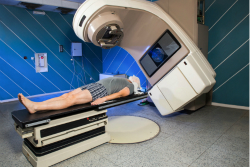Advanced radiotherapy for cancer
Radiotherapy utilises ionising radiation to induce DNA damage and kill cancer cells. Although it is associated with a number of side-effects, if delivery is localised to the tumour site, radiotherapy may be curative for various forms of cancer. One radiotherapy technique utilises subatomic particles devoid of electrons known as alpha particles that get emitted from unstable atoms. The EU-funded ALPHA CANCER THERAPY (Targeted conformal radiotherapy of disseminated cancers, using the alpha-particle emitting radionuclides astatine-211, bismuth-213 and actinium-225.) project wished to develop strategies for the treatment of disseminated cancer using alpha-particle emitters. Scientists studied the chemistry related to the labelling of radionuclides to different ligands and particle pharmacokinetics in relevant models. Their work concentrated on the rare radionuclides: astatine-211, bismuth-213 and actinium-225. One of the main challenges in the field of radiotherapy is the accurate determination of the dose delivered to the target. Considerable effort went into the development and delivery of an alpha particle device for accurate radiation dosimetry. Additionally, researchers worked on custom-built devices for imaging and evaluating targeted alpha therapy. Although radiotherapy lacks the ability to discriminate between normal and cancer cells, targeted delivery of ionising radiation could effectively reduce tumour burden. Furthermore, development of novel technologies that enable careful monitoring of ionising radiation is expected to increase the overall safety of the treatment.







